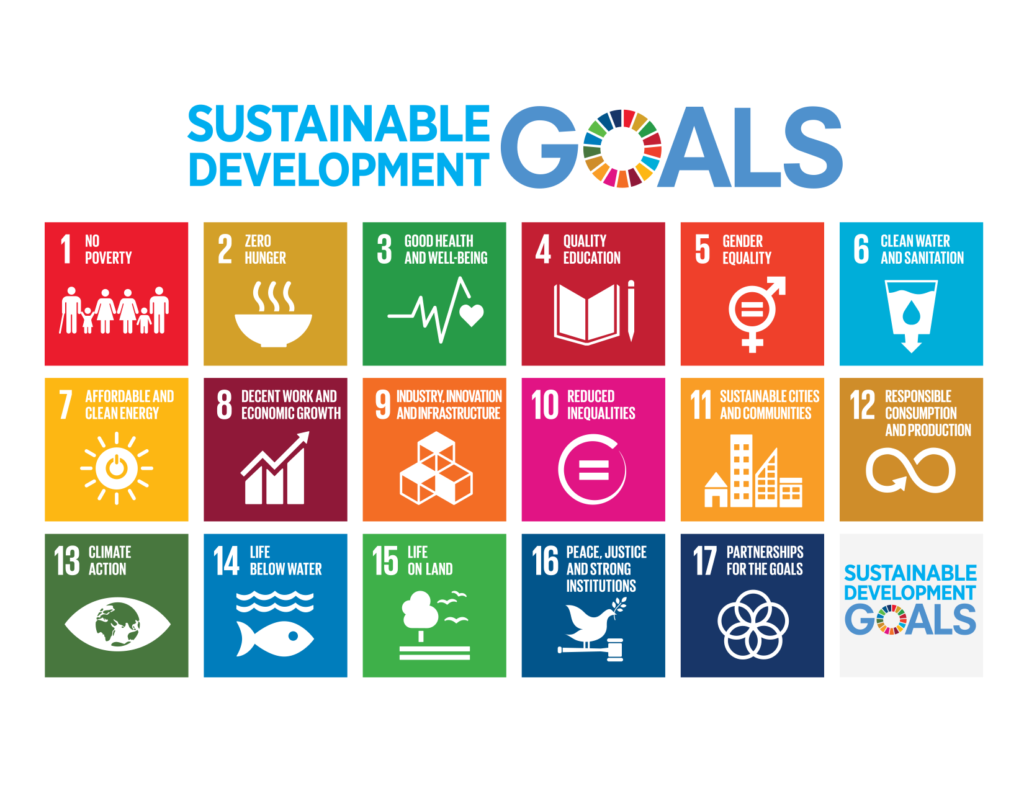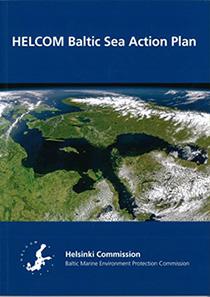The road to the Meeting
The Ministerial Meeting gathers together several threads of HELCOM work in the past few years, tying them into an overall vision for how to focus the efforts for a healthy Baltic Sea in the years to come.
Global goals
17 Goals to Transform Our World

In September 2015, the United Nations adopted its Agenda 2030, aiming to promote prosperity while protecting the planet. One of the 17 Sustainable Development Goals of the Agenda is goal 14 – “Life below water”, which overlaps with the goals of HELCOM’s own Baltic Sea Action Plan in many ways.
The countries around the Baltic Sea have agreed to use HELCOM as the regional arena for coordinating actions towards those SDGs that relate to marine and water issues.
HELCOM started its work on the SDGs by mapping how its activities contribute to goal 14, as well as other goals such as sustainable agriculture and water quality, in the recent publication Measuring progress for the same targets in the Baltic Sea (PDF, 3 MB).
At the 2017 Ocean Conference in New York, HELCOM made three voluntary commitments in order to speed up work on goal 14, in addition to the voluntary commitments made by the individual HELCOM countries.
For the Ministerial Meeting 2018, the focus is on what needs to be done in order to reach the goals: what efforts need to be prioritized, and how should the current action plan be adjusted?
Baltic Sea Action Plan and State of the Baltic Sea

The HELCOM Baltic Sea Action Plan (BSAP) is an ambitious programme to restore the good ecological status of the Baltic marine environment by 2021. It was adopted by all the Baltic coastal states and the EU in 2007, and it provides a concrete basis for HELCOM work.
In order to follow up on whether the goals of the BSAP are reached, HELCOM makes assessments of the marine environment. According to the latest major ‘State of the Baltic Sea’ assessment, much has been accomplished, and there are some encouraging signals in the ecosystem, but the efforts so far have not led to the recovery of the Baltic Sea. The Ministerial Meeting will discuss how to achieve stronger follow-through on the BSAP in order to reach the common goals, as well as how to adjust the BSAP in the light of new information on what issues are most important and what challenges are expected to arise in the future.
During the end of 2018, HELCOM has invited organizations that are active in the whole Baltic Sea area to give feedback on the State of the Baltic Sea report and comment on how they are able to use the results. Some of these results may also be relevant for the preparations ahead of the Ministerial Meeting.

Feeding into the preparations for the Ministerial Meeting are a number of projects funded by the BONUS programme – Baltic Organisations’ Network for Funding Science. Focusing on subjects like climate change, nutrients, biodiversity, and social and economic analysis, these projects produce scientific, reliable knowledge that HELCOM can use both to support its work and to identify what additional knowledge is needed.
The cooperation with BONUS aids the policy-making and the practical work done towards the goals of the BSAP, as well as the upcoming adjustment of the BSAP.
For example, a general conclusion from the projects that will be completed in 2017 and 2018 is that climate change is affecting all parts of the Baltic ecosystem. The changing climate is expected to affect the genetic diversity in the Baltic Sea, how species are distributed in the region, and how resilient the ecosystem is to nutrient loading. This means that when planning measures for biodiversity and nutrient reduction, the plans need to include measures to mitigate impacts from climate change.
Process leading up to the Ministerial Meeting
In June 2017, the 52nd meeting of the HELCOM Heads of Delegation agreed on the themes for the upcoming Ministerial Meeting, based on the priorities of the EU chairmanship in HELCOM.
The drafting groups started their work during the summer. In addition, the HELCOM Secretariat started preparing a background document taking stock of how HELCOM agreements have been implemented and comparing that to the results of the State of the Baltic Sea report.
In online meetings on 26 September and 13 November, the Heads of Delegation continued preparations by discussing the draft outcome and the background documents.
A new draft of the Ministerial Meeting outcome was discussed and polished at the 53rd Heads of Delegation meeting on 12–13 December. Resulting in the final draft submitted to the Ministerial Meeting, a last round of discussions was held at the 39th HELCOM meeting on 5 March.
